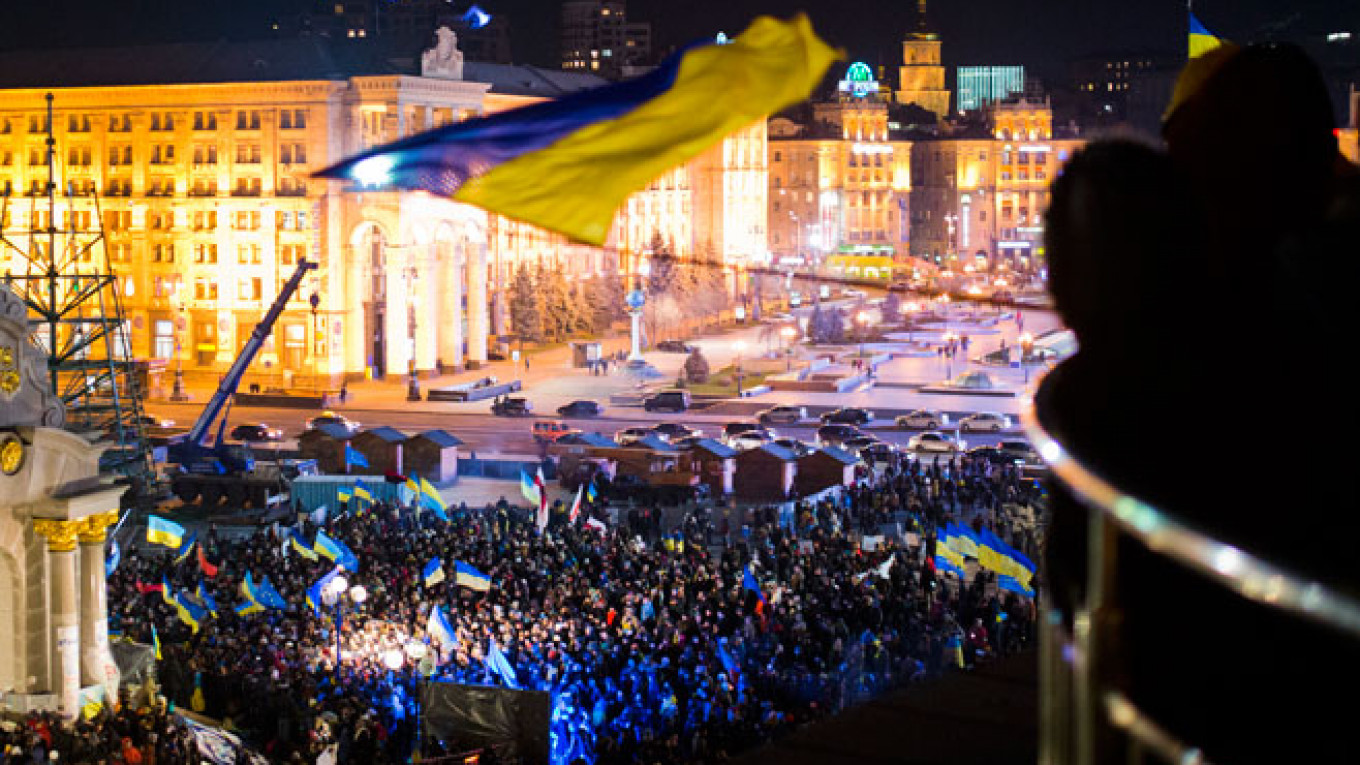Ukrainian civil society has become something of a paradox over the past year. Following former President Viktor Yanukovych's ouster in February 2014, civil society organizations successfully guided the country through a difficult transfer of power.
From February to April 2014, it was the Maidan self-defense groups that maintained order in Ukrainian cities that lacked functional police forces. Since then, however, they have been reluctant to give power back to governmental institutions.
Using forms of self-organization created on Maidan square, independent actors have taken over some of the state's responsibilities in responding to war and political crises. They saved the Ukrainian state from collapse in the short-term, but also created critical obstacles for the state's development in the medium-term.
Two functions lie at the state's core: a monopoly on the legitimate use of violence (by the police and the army) and administrative control. When the government fails to preserve its monopoly on these functions, a "sovereignty gap" emerges. The bigger the gap, the more reason to believe the state has failed.
Activists are increasingly involved in the political, economic and civil sectors, each of which has an important role to play in state-building. Certain public interests — honest elections leading to proper representation in parliament, or responsible and responsive governance, for example — need to be constantly monitored. Effective advocacy of these interests is at the core of civil society organizations' mandate.
However, trouble begins when civil society organizations attempt to be more than watchdogs; when the "dog" is unleashed and enters politics. Civil society organizations' expanding mandate poses a threat to the most significant political forces in Ukraine: oligarchs and the government.
Traditionally, the Ukrainian political class has treated civil society organizations as either 'agents of the West' or counter-elites undermining its rule. For their part, civil society leaders and activists trusted neither the government nor politicians.
But with the inability of the political class to adequately respond to the situation in Ukraine last year, this mutual enmity has turned into competitive cooperation.
In 2014, a new phenomenon emerged, which threatens to corrupt civil society's role in another way. Oligarchic groups recognized the functionality of civil society organizations and attempted to use them to further their own agenda.
Ihor Kolomoisky is the most high-profile oligarch to attempt to use civil society organizations in recent months. During the war in the east, he employed a huge number of volunteer groups (including military battalions), organizations advocating lustration, and other NGOs that helped advance his own interests. They promoted the image of Kolomoisky as a "defender of the independence" of Ukraine.
Established oligarchs like Rinat Akhmetov and Viktor Pinchuk are beginning to use Kolomoisky's strategy. This emerging model abuses civil activists and plays on their desire to solve public problems through direct action. But over time, oligarchs charge a price for their support.
The coercive power of oligarchs is one of the major current threats for the development of civil society in Ukraine. Corruption remains a vexing issue that has impeded Ukraine's political and economic development. Some parts of civil society are now becoming involved in these corrupt schemes.
In the end, the nexus between civil society, business and politics will introduce a new shade of systemic corruption and reduce the resources for the further democratic development of Ukraine.
Mikhail Minakov is associate professor in the Department of Philosophy and Religious Studies at Kiev-Mohyla Academy. This is a shortened version of a comment that originally appeared on Carnegie Moscow's Eurasia Outlook blog.
A Message from The Moscow Times:
Dear readers,
We are facing unprecedented challenges. Russia's Prosecutor General's Office has designated The Moscow Times as an "undesirable" organization, criminalizing our work and putting our staff at risk of prosecution. This follows our earlier unjust labeling as a "foreign agent."
These actions are direct attempts to silence independent journalism in Russia. The authorities claim our work "discredits the decisions of the Russian leadership." We see things differently: we strive to provide accurate, unbiased reporting on Russia.
We, the journalists of The Moscow Times, refuse to be silenced. But to continue our work, we need your help.
Your support, no matter how small, makes a world of difference. If you can, please support us monthly starting from just $2. It's quick to set up, and every contribution makes a significant impact.
By supporting The Moscow Times, you're defending open, independent journalism in the face of repression. Thank you for standing with us.
Remind me later.


